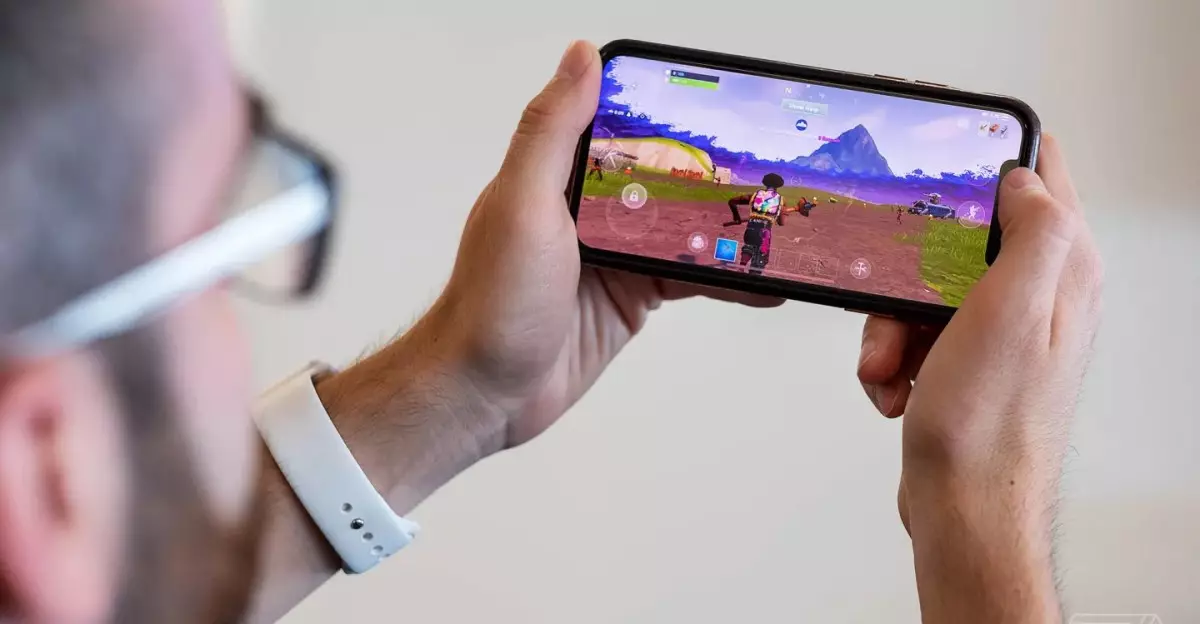In a monumental turn of events, Epic Games has successfully reinstated Fortnite to the iOS App Store nearly five years after being removed due to a significant breach of Apple’s payment policies. This decision marks a pivotal victory for both Epic and its global fan base, reigniting excitement in a community that had felt the vacuum of the game’s absence on iOS devices. The landscape of mobile gaming is dynamic and continually evolving; the return of a beloved title like Fortnite not only reflects Epic’s perseverance but also the shifting power struggles between tech giants.
The Battle with Apple
The initial separation of Fortnite from the App Store was a dramatic affair, sparked by Epic’s introduction of its own payment mechanism within the game—a move deemed a violation of Apple’s stringent rules. This triggered a legal war that put both companies on opposing fronts. The landmark court ruling in the Epic Games v. Apple case was pivotal; it mandated that Apple must allow developers to redirect users to alternative payment systems, effectively challenging the “Apple Tax” on digital content sales. This ruling has encouraged a broader conversation around the monopolistic tendencies of major tech companies, pressuring them to reconsider their business practices.
The Reinstatement Process
CEO Tim Sweeney, known for his passionate advocacy for game developers’ rights, hinted at his plans to bring Fortnite back to the iOS platform shortly after the court’s ruling. In a bold move, he proposed what he dubbed a “peace proposal” to Apple—suggesting that if Apple applied the court’s decision on a global scale, Epic would cease current and future legal disputes. The arms race took a further twist when Epic attempted to utilize its developer account based in Sweden to facilitate the app’s submission for U.S. distribution.
However, the road to reinstatement has not been smooth sailing; Apple initially blocked Epic’s attempts to restore the game to the App Store, creating heightened tensions and prompting Epic to seek judicial intervention to expedite its requests. The court’s intervention served as a reminder of the behind-the-scenes complexities plaguing app submissions and regulatory compliance.
Players Rejoice
With Fortnite now available for download on the iOS App Store, excitement has swept across the gaming community. This reinstatement is more than just a victory for Epic; it extends its global fan base the ability to engage with the game once again on their preferred devices. Players are not just accessing the game; they are also being greeted with new features and incentives that specifically promote the use of Epic’s payment system. Offering a 20% back in Epic Rewards for transactions made through their system illustrates Epic’s commitment to nurturing a vibrant player community while also reinforcing its business model.
Challenges Ahead
Despite the euphoria surrounding Fortnite’s return, challenges remain on the horizon. The mobile gaming industry has been persistently advancing, with new titles and platforms vying for players’ attention. Epic’s strategy to maintain player engagement and loyalty will be crucial as they look to future updates and content drops. Additionally, the ongoing discussions around app marketplace policies and the broader implications of legal victories like that of Epic’s against Apple will continue to shape the digital ecosystem in which they operate.
The Future of Gaming
The return of Fortnite to the iOS App Store encapsulates a significant moment in the ongoing evolution of mobile gaming. It underscores the growing demand for fair treatment in app marketplace policies and raises questions about the future relationship between app developers and platform holders. While the legal battles may settle for now, the reality remains that the gaming landscape is continually transforming. For Epic and its followers, this is not just a rebound; it is a testament to what can be achieved when a major player in the industry challenges the status quo, sending ripples across the immense waters of technological enterprise. The outcome could set a precedent not just for gaming but for how digital marketplace dynamics evolve moving forward.

